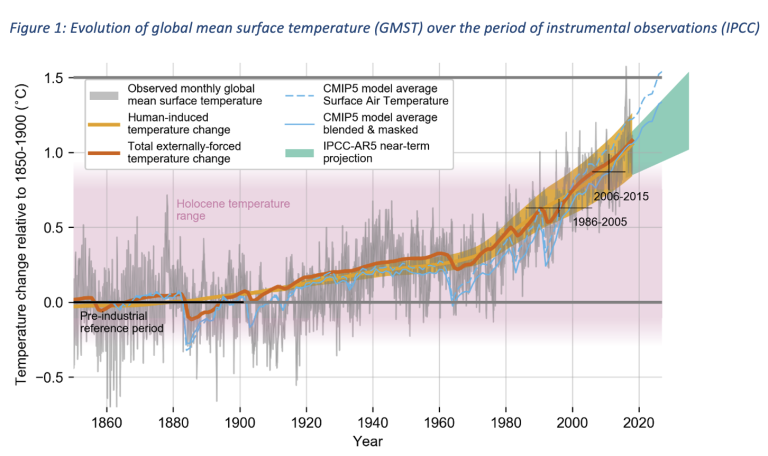Takeaways from the IPCC’s 6th Assessment Report
 Adam MacRae
Adam MacRae  April 7, 2023
April 7, 2023  Adam MacRae
Adam MacRae  April 7, 2023
April 7, 2023 For this month’s sustainability insights piece, we’re taking another break from our regular deep dive into the Sustainable Development Goals. This month we’re covering the latest IPCC report:
First off, what is the IPCC and why do they matter? The Intergovernmental Panel on Climate Change, otherwise known as the “IPCC” is an intergovernmental organisation and the scientific research and advisory organisation that operates within the UN ecosystem. Their main responsibility is researching and investigating human-caused climate change.
Every few years, the IPCC releases a series of assessment reports as well as supplementary special reports. These comprehensive reports effectively serve as summaries collecting all the high-level takeaways from previous related reports, studies, and data-driven findings.
This latest report is one of those summary reports, and it is a beast. Compiled by hundreds of scholars and world-leading academics, the report distilled multiple landmark findings released since 2018 into a single report. Were that not impressive enough, the final report is approved by the representatives of 195 countries, the political equivalent of herding a dozen cats.
The long and short of it is that it confirmed everything we already knew and removed all sense of ambiguity. In previous reports there were mentions of ‘medium confidence’, the vast majority of which have been replaced by ‘strong confidence’.
It’s getting hot in here.
According to IPCC’s research, there is now very little chance of the world achieving its stated goal of preventing global warming of 1.5⁰C from pre-industrial levels. As the world is already at 1.1⁰C above pre-industrial levels (as of 2023), the scientific community now predicts that we will hit 1.5⁰C some time in the 2030s; only 7 years away at the earliest.

This leads to another consideration, of how much we will we overshoot the threshold by and how do we find ways to bring the temperature back down in the decades and centuries ahead.
The age of fossil fuels needs to go the way of the dinosaurs.
Second, there is no future where the world achieves the goals of the Paris Agreement if further investment in coal, oil or gas continues. This is a sentiment also backed up by the IAEA which reported in 2021 that there was no scenario where any investment or expansion of current activities in dirty energy sources could be compatible with a sustainable future.
The past does not define the future.
Third, the report makes it abundantly clear that nothing is set in stone. There are still lots of ways for people to change their habits and address climate change.
Start taking action, stop making pledges.
First, the authors mention that just as humanity led us to the present situation we find ourselves in today, humanity can also take the difficult but necessary steps to not only address climate change, but reverse it to undo the costliest damage.
Some of those steps to take today include drastically reducing our reliance on fossil fuels while at the same time rapidly investing in renewables. If you were to put a price on it, it would require around $2 trillion of investments per year from now until the mid-2030s. One positive fact supporting this is the rapid decline of the cost of renewable energy in recent decades. These are known to be mitigative measures, which are understood to be actions that directly address the reduction of emissions.
We’re going to need better coping mechanisms.
Furthermore, as the world is going to get hotter before it gets better, we as a society will have to also invest in adaptive measures. Adaptive measures are those that refer to actions/investments that will help humanity cope in a warmer and more unstable climate. These measures include investing heavily in infrastructure by upgrading existing buildings to better deal with hotter summers, and ensuring they are more resistant to floods as well as other environmental risks.
The points above are just some of the tangible steps that we are committed to addressing. Whether it be investing in renewables in both developed and emerging markets, or renovating an existing hotel to make it more efficient and resilient, Holocene is perfectly placed to support your funding needs.
If you’re interested in learning more about the kind of projects we work on and how we can potentially support your initiatives, please email our Chief Sustainability Officer at [email protected].